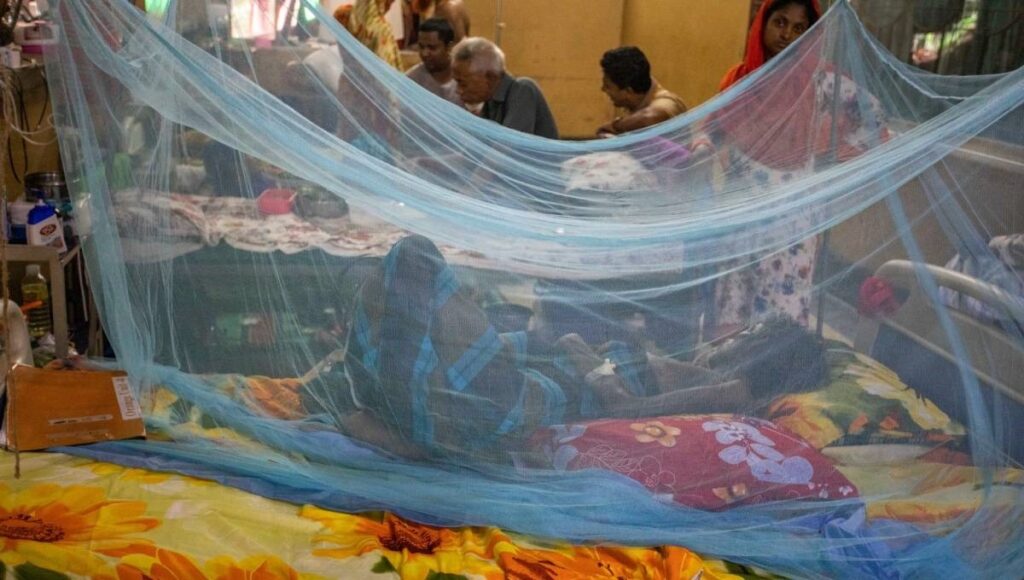Dhaka, Sept 1 (UNB) – It will not be possible to bring down dengue infection rate to a zero level, but concerted efforts can help prevent another outbreak like the one experienced this year, said Prof Dr Abul Kalam Azad, Director General of the Directorate General of Health Services (DGHS).
“It’ll take more time to bring the dengue situation under control. But bringing new infection rate to a zero level is quite impossible,” he told UNB in an interview.
The DGHS chief said dengue has been there in Bangladesh since 2000 but the outbreak was sudden. “The dengue infection rate will come down in the next several years if we can [conduct] cleanliness campaign across the country and become aware ourselves,” he said.
DGHS data showed that 69,435 patients were hospitalised with dengue since January 1. Of them, 64,558 were discharged after recovery. Currently, 4,697 patients are being treated at hospitals and clinics. In 24 hours till 8am on Friday, 1,025 new patients were hospitalised.
The Institute of Epidemiology, Disease Control and Research (IEDCR) has received complaints of 180 dengue-related deaths since January 1. It has so far reviewed 88 cases and confirmed that 52 of them were linked to dengue.
Prof Azad said they have to update the current medication system if needed after changing the guideline. According to him, tropical countries like Bangladesh are dengue-prone regions as mosquitoes get favourable atmosphere there. The climate has an important role in spreading dengue, he added.
The DG said they had talks with experts from various countries. “It’s not possible to fully eradicate dengue,” he said.
“But beginning treatment on time and drinking plentiful water or saline eliminate any risk [of death],” Prof Azad said.
Prof Dr Sania Tahmina, director of disease control unit of DGHS, said they warned the Dhaka city corporations in March about a possible dengue outbreak in the capital and across the country this year.
The densely populated megacity has been at the centre of dengue outbreak with most of the cases reported from here. Forty-nine out of the 52 confirmed dengue deaths were recorded in the capital.
Dr Tahmina said their technical team is working round the clock to tackle dengue outbreak.
Asked about the government’s plan to prevent dengue permanently, Local Government and Rural Development (LGRD) Minister Tazul Islam said Dhaka city corporations have been asked to formulate a master plan based on experience of this year.
The plan will include identifying different breeding grounds of Aedes and other mosquitoes and actions to destroy them, the minister said.
“We’re working on a comprehensive programme,” he added.
Minister Tazul said they have identified the weak points while working intensively this year. “[We] now know that dengue is not a seasonal issue now but a yearlong headache,” he said, adding that they will take long-term plans and month-wise activities.
A cell has been formed on behalf of the LGRD Ministry to monitor the situation regularly while high officials of the ministry were appointed in every ward of the capital.
Health Minister Zahid Maleque said there was no complaint about treatment. “We’ve been doing the necessary things,” he said.
The DGHS has been in touch with foreign experts to acquire their knowledge to provide swift medication for dengue patients, he added.
“We’ve been working to destroy the breeding ground of aedes and monitoring the situation round the clock,” he said, adding that the two city corporations have to play effective roles.




